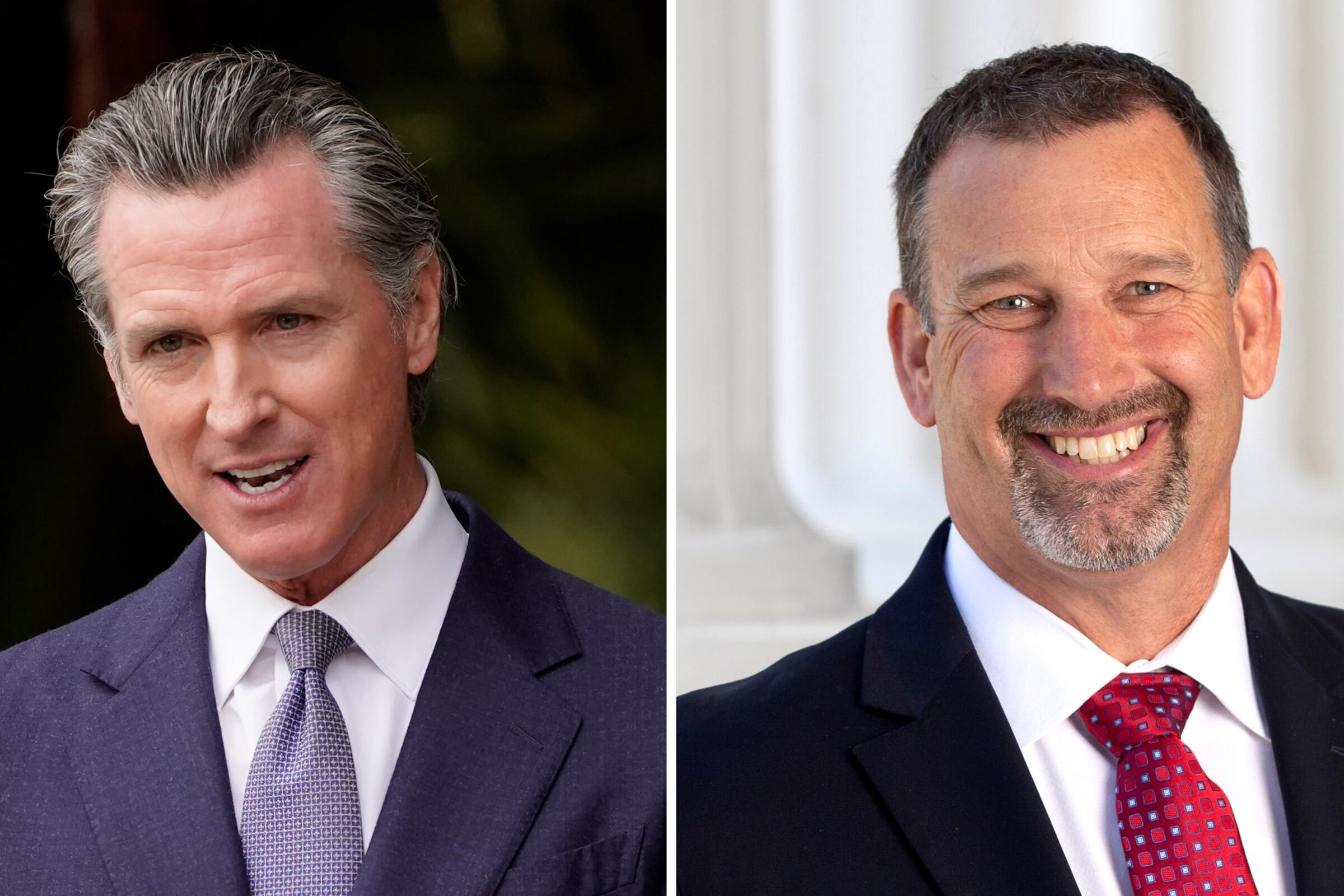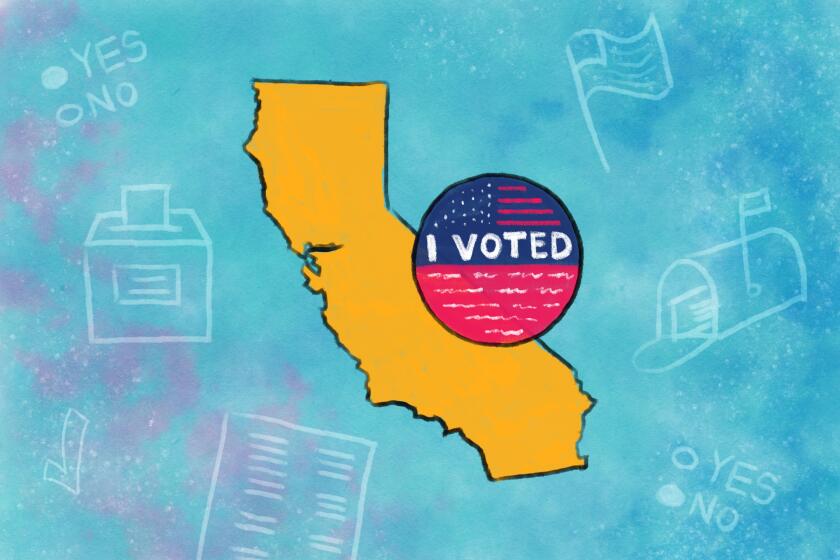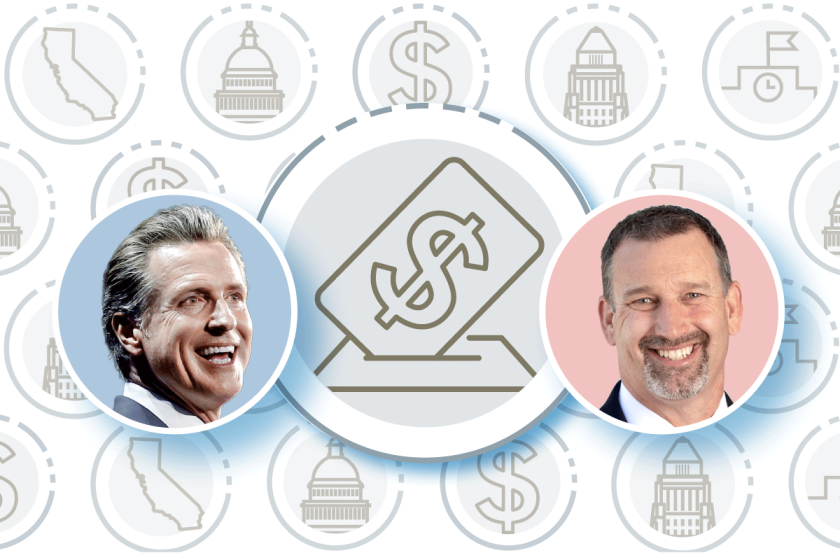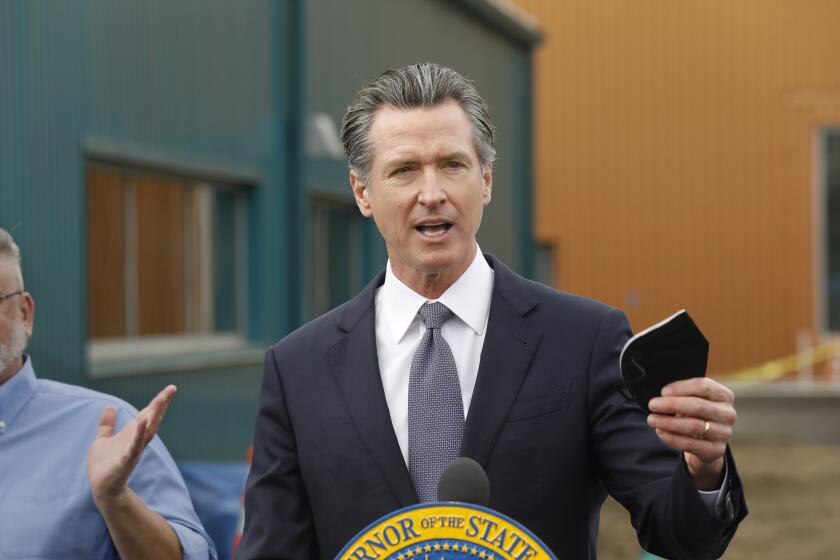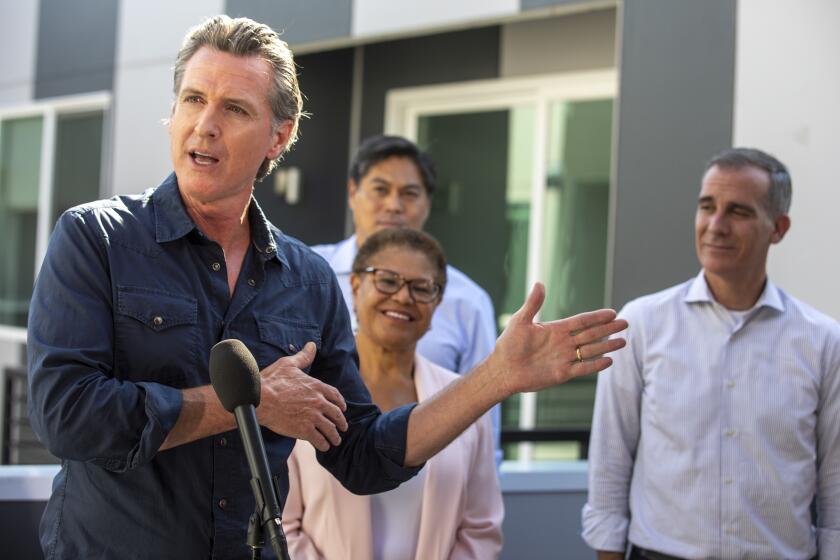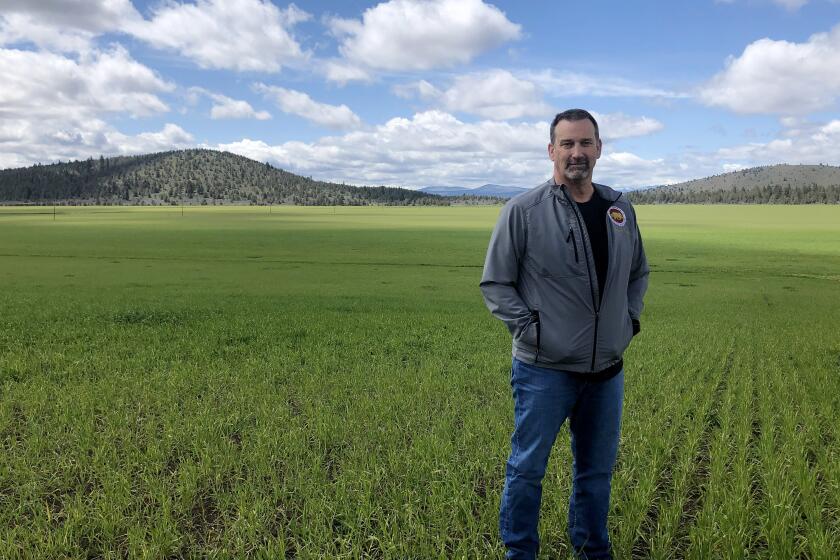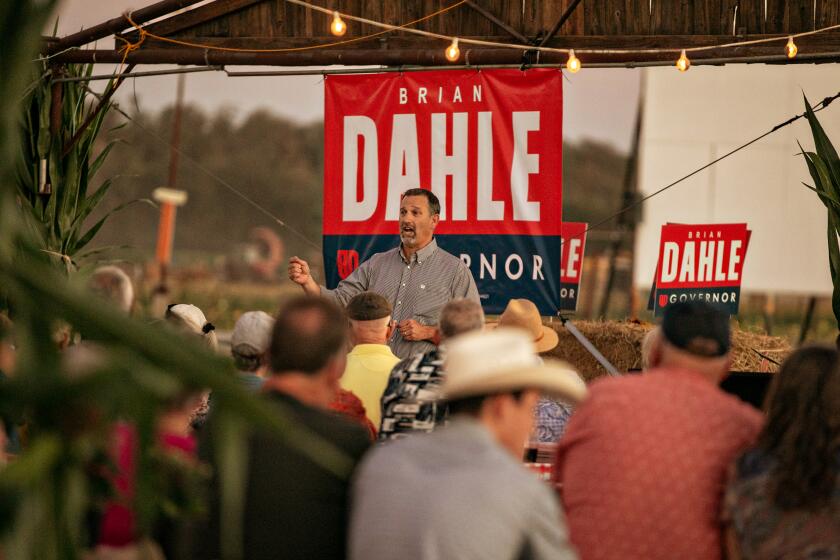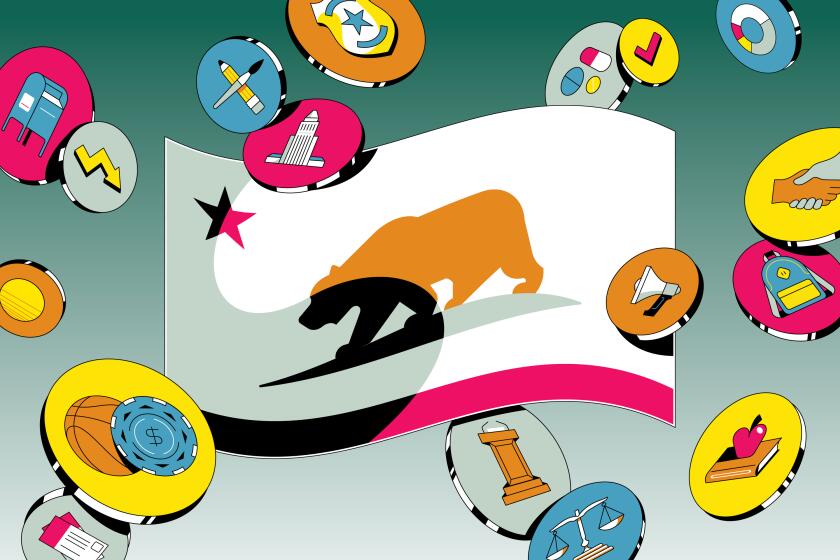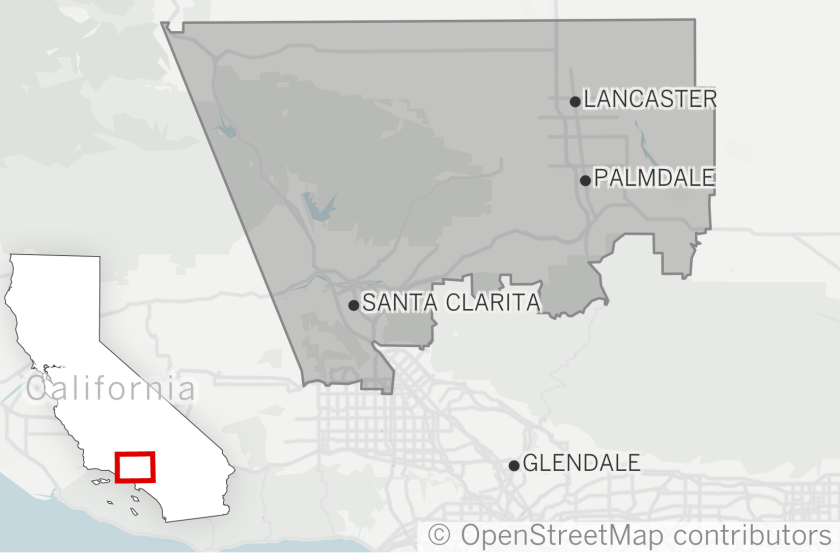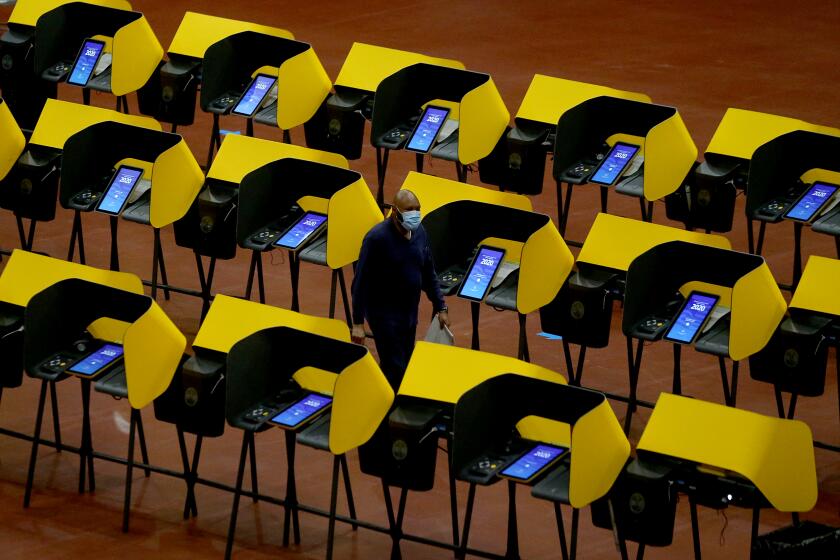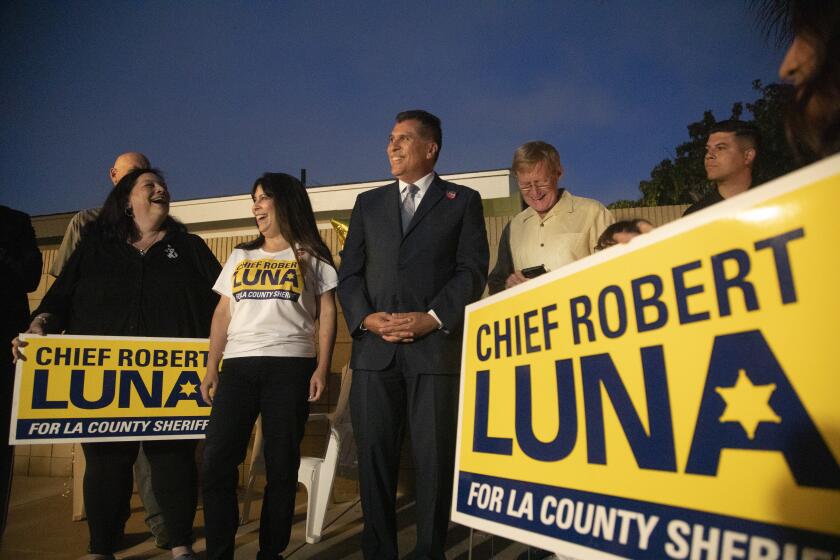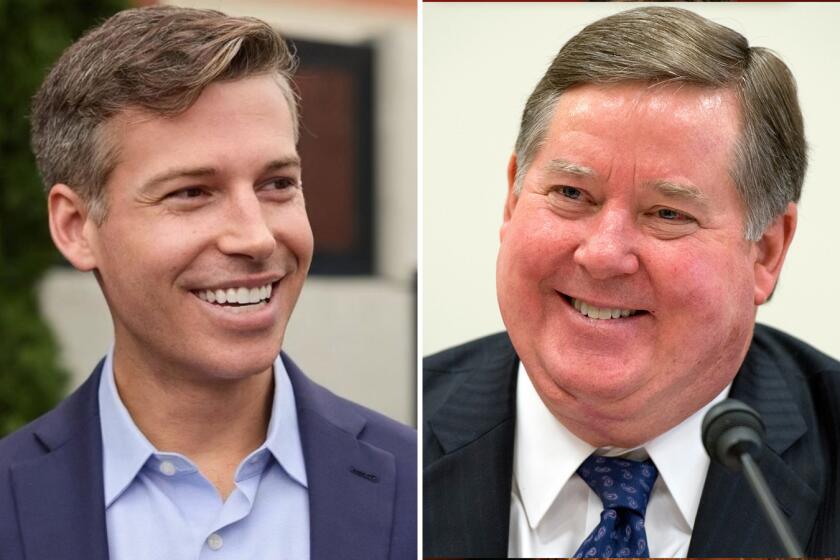GAVIN NEWSOM
Newsom’s political career began in 1996 when then-Mayor Willie Brown appointed him to San Francisco’s Parking and Traffic Commission and the following year to the San Francisco Board of Supervisors. He became San Francisco’s youngest mayor in 2004, went on to serve as lieutenant governor and captured the governor’s office in 2018 with the largest margin of victory in more than a century.
Throughout his time in public office, Newsom has earned a reputation for championing progressive causes. He stood up for LGBTQ rights and issued marriage licenses to same-sex couples as mayor. Months into his governorship, he imposed a moratorium on the death penalty in California. In August, the Legislature met his call to impose stronger restrictions on the oil and gas industry, including buffer zones between new wells and neighborhoods and schools, to the delight of environmental justice advocates.
But his actions don’t always support his liberal image.
On the scale of San Francisco politics, Newsom was often seen as a business-friendly moderate. His Care Not Cash program, which sought to reduce welfare for single homeless adults and instead spend the funds on shelters, housing and services, was widely criticized by activists who called it heartless.
This year, he took on the American Civil Liberties Union, Disability Rights California and the Western Center on Law and Poverty, which opposed his law establishing a Community Assistance, Recovery and Empowerment (CARE) Court system. CARE Court aims to provide court-ordered treatment for thousands of Californians suffering from a mix of severe mental illness, homelessness and addiction.
Democrats at the Capitol also heeded his call this year to extend operations at Diablo Canyon, reversing an agreement environmental groups drove six years ago to shut down California’s last remaining nuclear plant out of safety concerns.
The 55-year-old governor has focused his reelection campaign largely outside California. Newsom has paid little attention to Dahle and instead has taken advantage of social media and speaking events across the country to position himself as a national Democratic leader fighting back against Republican governors. He challenged Gov. Ron DeSantis of Florida to a debate. His first ads after the primary ran in Florida and he promoted a California website to help people seek abortions on billboards in seven states with the most restrictive abortion bans.
His attempts to seek national attention have stirred speculation that he’s running a not-so-shadow campaign for president, though he denies having any interest in the White House and says he supports President Biden.
BRIAN DAHLE
Dahle is a conservative state senator from the tiny town of Bieber in the northeast corner of California. The 57-year-old legislator was on the Lassen County Board of Supervisors for 16 years before being elected to the California Legislature in 2012. He served as Assembly Republican leader before being elected to the state Senate in 2018. He has focused on water, forestry, wildfire and housing issues, working with elected officials from across the Western states.
Friends and colleagues in Lassen County and the state Capitol praise Dahle for his warm, friendly demeanor. While true to his conservative opinions, he eschews the caustic partisan politics pervasive in Washington and in the national dialogue.
Dahle was a member of the Quincy Library Group, a consortium of environmentalists, timber company representatives and elected officials in the northeastern part of California. The group was formed to quell the decades-long, contentious fights over management policies for national forestlands in the northern Sierra Nevada.
Dahle and others worked with Sen. Diane Feinstein of California and other Democrats and Republicans in Congress to pass a short-lived regional forestry program in 1998, which, in part, thinned combustible overgrowth to prevent catastrophic wildfires.
Along with working at the Capitol with his wife, Assemblymember Megan Dahle, the senator operates a 1,000-acre seed farm outside Bieber on land that has been in his family for generations.
After high school, college wasn’t an option for Dahle or his three siblings, he said. The family had plenty of farmland but little money. He worked different jobs up and down the state, pulling chains in the local lumber mill, blasting rock to build hydroelectric plants and driving a bulldozer in an open-pit gold mine. He returned to the family farm in his mid-20s.
When asked if he voted for Trump in either of the last two presidential elections, he said that isn’t relevant to the current issues California faces. When asked if President Biden was legitimately elected in 2020, despite Trump’s false claims that the election was rigged, Dahle said only that Biden is “our president.”
When Trump made a stop in Redding during the 2016 presidential campaign, Dahle declared the area “Trump Country,” according to the Record Searchlight. And it still is. In California, Trump was trounced statewide by Biden in 2020. But in Lassen County, Trump won 75% of the vote.
